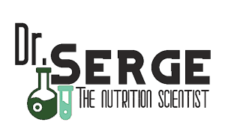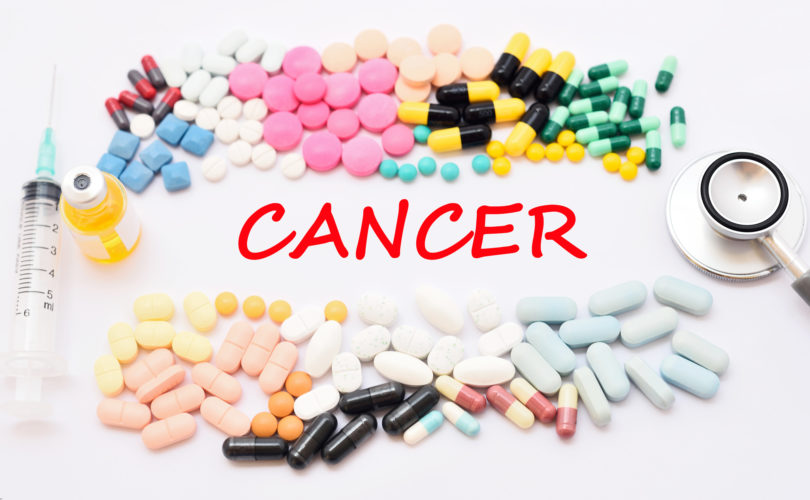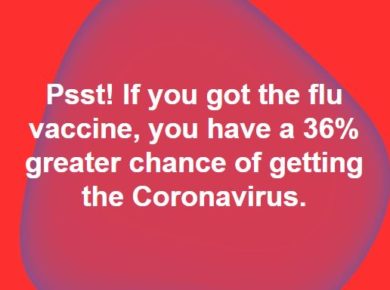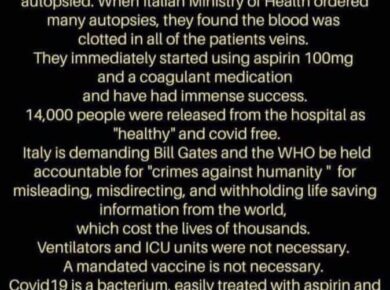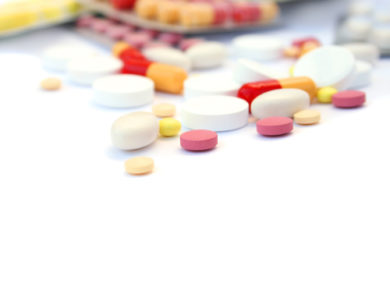A few weeks ago, I wrote about antibiotics and how bad they are. That we should do everything in our power to not use them. You can read the blog here:
But sometimes, things can get out of control, and an antibiotic is necessary.
Let me tell you how I woke up to the truth and found out how our current medical system kills people.
My little boy, Luca, was diagnosed at 8-month-old with type 4 neuroblastoma that was located in the left adrenal. Back then, I was pursuing a medical career, and when we found out about this, we trusted the oncologist because that is where my faith was. I did not know any better, unfortunately.
Right away, they started chemo even though they told us that they have never seen this type of cancer in a child and specifically in the adrenals. They were trying to figure out how to help him with different chemo drugs. They were honest with us; they told us that most likely, nothing will help us, but it is worth a try.
As you can imagine, chemo destroys the body, the immune system. After 4-5 monthly cycles, he got very tired and got septic. The bacteria Pseudomonas got into his bloodstream through his heart port.
Usually, this bacteria is benign for most of us. Actually, we are exposed to this bacteria every day without any problems. But for immunocompromised individuals, it could be fatal.
He got a very high fever, around 105, and he was on IV antibiotics for almost a week.
This was an instance that antibiotics were necessary, unfortunately. It was a question of death or life. And on the other side, I did not know any better. I trusted his doctors.
The question we can all ask: if you were in this situation, what would you do? Knowing that antibiotics are harmful…
Though one… but my point is that sometimes there is a need for conventional medicine.
Honestly, if I got into a car accident, I would rather have an MD helping me than a naturopath 😊
Extreme circumstances, extreme measures! 😊
Spending about 12 months in and out of the hospital and seeing his health declining every time started my journey on questioning modern medicine.
Since then, I have always suspected that antibiotics increase the risk of cancer. It is believed that cancer is predominantly fungus. And we know antibiotics lead to fungus overgrowth.
In Luca’s case, his growth got a lot worse after a week being on IV antibiotics. Is there a connection there? Maybe.
A recent study confirms this suspicion.
The study published in the journal ‘Gut’ highlighted the need for judicious use of this broad category of drugs, which are frequently improperly or overprescribed.
The study leader Cynthia L. Sears said:
“The primary message of this study is the importance of antibiotic stewardship: not treating common viral infections with antibiotics, using them for the shortest time period possible, and using targeted antibiotics rather than broad-spectrum ones. This research adds to our understanding that these drugs can have significant off-target effects, including the induction of chronic illnesses.”
In an extensive “data mining” analysis of British medical records, researchers at the Johns Hopkins Kimmel Cancer Center conclude that taking even a single course of antibiotics could boost the risk of developing colon cancer a decade later.
Sears cautions that medical records studies like hers are not designed to demonstrate cause and effect but to identify possible associations between risk factors and disease.
After all, correlation does not mean causation 😊
But she notes
that because the database held so much specific information over a long period
of time that the study authors concluded that the most likely explanation for
the bump in colon cancer risk is the radical change that antibiotics wreak on
the microbiome, the collection of bacteria that live in the intestines.
Antibiotics are widely prescribed throughout the world to treat bacterial
infections, and there is growing evidence, including several epidemiological
database studies, that link the use of these drugs to the risk of colorectal
cancer.
However, these
past studies have had a variety of drawbacks, including failure to control for
other colorectal cancer risk factors (family history, history of obesity,
smoking, alcohol use, and diabetes) recall bias in patients’ recollections
about antibiotic use, failure to separate data about colon and rectal cancers,
and too few study participants to produce meaningful conclusions.
To learn more about the association between antibiotics and colorectal cancers,
Sears, Zhang, and their colleagues mined data from the Clinical Practice
Research Datalink (CPRD), one of the world’s largest electronic medical record
databases of “anonymized” clinical records, information that does not identify
individual patients.
CPRD holds
information on more than 11 million patients in the U.K., including data on
drug prescribing and diagnoses, making this study the first population-based
study to examine the association of antibiotic exposure and risk of colorectal
cancer.
Focusing on a 23-year period from January 1, 1989, to December 31, 2012, the
researchers found 28,890 cases of colorectal cancer. They matched each of these
patient records with up to five healthy “controls” who never developed this
disease, but who had similar characteristics, including age, gender, and where
their general practitioner practiced, for a total of 137,077 “control” cases
for comparison.
They then used the medical records to identify and evaluate each case history
for colorectal cancer risk factors, such as a history of obesity, smoking,
alcohol use, and diabetes, as well as antibiotic use.
As expected, the researchers found that those patients who developed colorectal
cancer were more likely to have one or more of the known risk factors.
However, when they accounted for these factors in their statistical evaluation, they found that those who developed colon cancer were more likely to have been exposed to antibiotics.
Further
investigation showed that antibiotic exposure was associated with an increased
risk of approximately 15% for colon and this risk happened particularly after
exposure to classes of antibiotics that kill anaerobic bacteria, such as those
in the penicillin family.
Among the compelling findings, the researchers say, was the rapid onset of
increased colon cancer risk, beginning with only 15–30 days of total
antibiotic exposure (approximately 8% increased risk with 15–30days of
total antibiotic exposure and approximately 15% increased risk with 30 or more
days of total antibiotic exposure).
Although
antibiotics are most often highly effective at eradicating bacterial
infections, they also can change the balance of the gut biome by killing
beneficial bacteria and allowing pathogenic ones to thrive. Some of these
surviving bacteria could be carcinogenic, encouraging polyps to grow and
develop into malignant tumors.
In recent years, probiotic-rich foods and supplements have become popular, in
part to address gut biome imbalances. In addition, a better way to avoid
potentially increased colon cancer risk from antibiotic use is through more
cautious prescribing of antibiotics.
So, biologically and physiologically, it makes sense. The gut microbiome is critical to maintaining an optimal immune system. If you destroy, and it takes just one round of antibiotics, you would have consequences. Cancer is one of them.
The key to good gut health is to avoid all junk foods. When you do that, you avoid a lot of toxins that are present in them, like preservatives, colors, trans fats, etc.
Then, focus on healthy, fresh food. The gut loves fibers, so make sure you eat your veggies 😊
There are many herbs you can take to help the gut like goldenseal, calendula, Pau d’Arco, berberine, echinacea, wormwood, oregano, neem, clover, black walnut, etc.
Of course, food rich probiotics are important like kombucha, kimchi, kefir, sauerkraut, among others.
Eating organic is very important, as well. Roundup that ends up in our food supply is really, really bad to the gut. I use a product from Purium called Biome-Medic, that is really effective at eliminating pesticides from the gut.
A coffee enema is a powerful way to detox as well.
Happy gut, happy health! 😊
God bless y’all 😊
Dr. Serge
